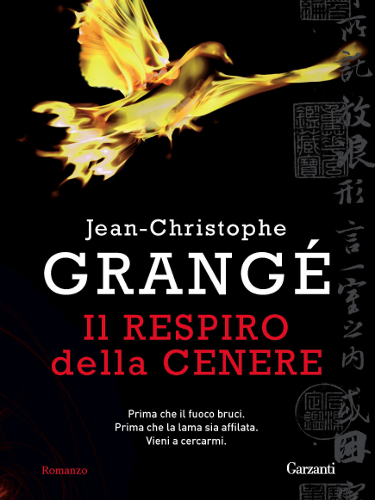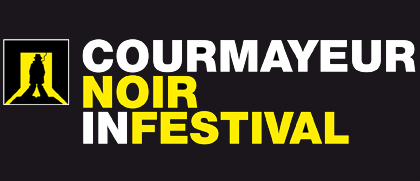EDITORIALS
NEWS
PROGRAM
FILMS
WRITERS
Scerbanenco
Conversations
Chandler Award
EVENTS
HONORARY AWARDS
GALLERY
NEWS
PROGRAM
FILMS
WRITERS
Scerbanenco
Conversations
Chandler Award
EVENTS
HONORARY AWARDS
GALLERY
Kaïken
"The reportages that I produced in my life helped me a lot in my writing, giving me information on the material that I found in the books. Over time, I changed tactics: today I write a very loose structure and a highly detailed synopsis, then I go to where the story is set. In this way, a very interesting chemistry is created. Essentially, I commission reportages of myself. I drew from my private life in this new novel; my wife is Japanese. The story revolves around a Westerner who’s fascinated by the millennia-old Japanese culture, and a Japanese woman who knows that samurais and geishas no longer exist." The novel’s main character, Inspector Olivier Passan, is investigating Patrick Guillard, a hermaphrodite abandoned by his mother at birth, convinced that Guillard is the serial killer terrorizing Paris. But apart from a few clues and his intuition, he has no way of proving it. Then Guillard, inspired by the legend of the phoenix, sets himself on fire. The solution to the mystery lies with Naoko, Passan’s ex-girlfriend (and the mother of his children), who has fled to Japan with the answers the he needs.
The king of the French thriller, Jean-Christophe Grangé is also a successful screenwriter and producer. His novels, which have broadened the horizons of the traditional thriller, have been published throughout the world and sold over 20 million copies. After studying literature at the Sorbonne, he landed a job in advertising, which, he says, "was not a very good experience. The working world was a lot different than what I expected, it was ruled by a bourgeoisie spirit. But thanks to that job I met some photographers who asked me to write some texts for their work. That’s how I became a reporter, and I realized that it could be my profession. I was a freelance reporter for 10 years. And I became a writer thanks to my photographer, who read a lot of detective novels during our flights. I really started liking the genre, and after finishing a piece on stork migration, I began writing my first novel, Flight of the Storks." His extensive career as a reporter, which took him throughout the world, from Burma to the North Pole, via Nigeria and Mongolia, proved a fundamental source of inspiration, both in terms of setting and the scientific contexts in which the stories took place. His seemingly boundless imagination is what gives his novels so rich, and what inspires Grangé to create such complex intrigues and mad characters. His books have been adapted for cinema many times. The Blood Red Rivers won the 2007 Grinzane Cinema prize for the best book that adapted into a film: The Crimson Rivers, directed by Mathieu Kassovitz and starring Jean Reno and Vincent Cassel. His selected filmography includes: 2001’s Vidocq (screenplay) directed by Pitof, with Gérard Depardieu, Guillaume Canet and Inés; in 2005, Empire of the Wolves (novel and screenplay) by Chris Nahon, featuring Reno; 2006’s The Stone Council, by Guillaume Nicloux, with Monica Bellucci, Catherine Deneuve and Moritz Bleibtreu; in 2011, Switch (screenwriter and producer) by Frédéric Schoendoerffer, featuring Eric Cantona; and in, 2013 La marque des anges - Miserere (from the novel) by Sylvain White, with Gérard Depardieu.
Kaïken, Albin Michel, Parig, 2013
Le passager, Albin Michel, Parigi, 2011
La forêt des Mânes, Albin Michel, Parigi, 2009
Miserere, Albin Michel, Parigi, 2010
Le serment des limbes, Albin Michel, Parigi, 2007
La ligne noire, Albin Michel, Parigi, 2004
L'empire des loups, Albin Michel, Parigi, 2003
Le concile de pierre, Albin Michel, Parigi, 2000
Les rivieres pourpres, Albin Michel, Parigi, 1998
Le vol des cicognes, Albin Michel, Parigi, 1994
 |
|
|
PROGRAM
14/12/2013 h 16:00: Jardin de l'Ange Presented by Sebastiano Triulzi
|

